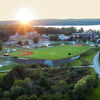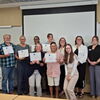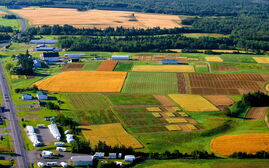Processing Your Payment
Please do not leave this page until complete. This can take a few moments.
- News
-
Editions
-
- Lists
-
Viewpoints
-
Our Events
-
Award Honorees
- 2025 Business Leaders of the Year
- 2025 Outstanding Women in Business
- 2024 Women to Watch Honorees
- 2024 Business Leaders of the Year
- 2023 NextUp: 40 Under 40 Honorees
- 2023 Women to Watch Honorees
- 2023 Business Leaders of the Year
- 2022 NextUp: 40 Under 40 Honorees
- 2022 Women to Watch Honorees
- 2022 Business Leaders of the Year
-
-
Calendar
-
Biz Marketplace
- News
- Editions
- Lists
- Viewpoints
-
Our Events
Event Info
- View all Events
- Outstanding Women in Business Reception 2025
- On The Road with Mainebiz in Bath
- 60 Ideas in 60 Minutes Portland 2025
- 40 Under 40 Awards Reception 2025
- On The Road with Mainebiz in Lewiston / Auburn
- + More
Award Honorees
- 2025 Business Leaders of the Year
- 2025 Outstanding Women in Business
- 2024 Women to Watch Honorees
- 2024 Business Leaders of the Year
- 2023 NextUp: 40 Under 40 Honorees
- 2023 Women to Watch Honorees
- + More
- 2023 Business Leaders of the Year
- 2022 NextUp: 40 Under 40 Honorees
- 2022 Women to Watch Honorees
- 2022 Business Leaders of the Year
- Nomination Forms
- Calendar
- Biz Marketplace
Heat waves are costly, and UMaine study finds they may nearly double in size
Recent research has shown that summer heat waves, increasingly frequent, can lower business productivity by as much as 24%. And now a University of Maine study shows they may soon blanket more of the U.S.
By the middle of the century, the average geographic size of heat waves across the country could be 80% larger than today if greenhouse gas emissions continue unabated, a UMaine climate scientist predicts.
Bradfield Lyon led a research team that analyzed temperature data to identify contiguous summer heat wave regions from 1979–2009 and in a model projecting climate for 2031–2055, according to a news release.
The researchers found that by mid-century, based on a conservative greenhouse gas emissions scenario, the average size of heat waves will increase by 50% over their size today. Based on high projections of greenhouse gas, the average size will increase by 80%, with extreme heat wave events more than doubling in size.
“Larger spatial extent of heat waves strongly suggests larger human exposure and increased energy demand, and could also have implications for fire risk and air quality,” according to the researchers, who published their study in the journal Environmental Research Letters.
Previous studies have shown that heat waves will probably increase in duration, intensity and frequency as the climate system warms in response to increasing greenhouse gas concentrations. But scientists hadn't systematically studied the geographic size of heat wave regions.
The study provides a new framework from which to analyze heat waves and their impacts, UMaine said in the release.
Lyon is an associate research professor with the UMaine Climate Change Institute and School of Earth and Climate Sciences. The research was partly funded by the National Oceanic and Atmospheric Administration's Climate Program Office.














0 Comments